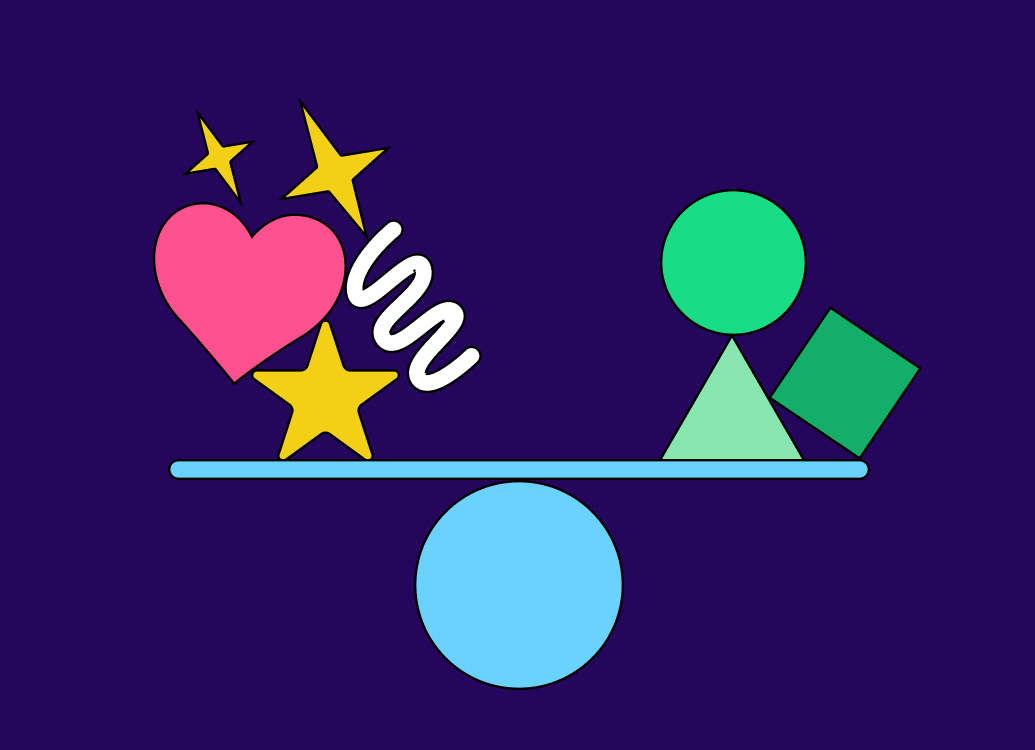If you turned your TV on in 1962, you might have stumbled upon The Jetsons. Set a hundred years in the future, in 2062, this cartoon imagined a world transformed by technology: video calls, flying cars, and talking domestic robots. Everything was faster, smarter, and easierŌĆ” except work.
George Jetson, the protagonist, worked just three days per week, but he still had a desk job and a commute. His work as a ŌĆśdigital index operatorŌĆÖ was boring and repetitiveŌĆöand his tyrannical boss, Cosmo Spacely, was furious every time George stepped away from his desk and threatened to fire him constantly.
Sixty years later, weŌĆÖre building GeorgeŌĆÖs future. But are we doomed to keep living his dystopian office life?
How to build the workplace of the future
The answer is no. Some leaders are already reimagining how teams operate, and their insights offer a roadmap to a better, more intentional future of work.
, CEO at Instrument, and , CEO at ░Ą═°╔½ŪķŲ¼, are two of them. Last month, we hosted them for a ░Ą═°╔½ŪķŲ¼ live session titled Now is the time to rethink of we work (you can watch the 44-min recording here), and this is their blueprint for doing work the right way.
ŌĆŹ
Make work flexible
When Burton scrapped her previous return-to-office mandate, something unexpected happened: some team members started coming in more, because they could choose where and how to work.
ŌĆ£If youŌĆÖre still mandating a one-size-fits-all, universal way of workingŌĆöhereŌĆÖs a desk, a chair, an office, a commute, or a booked conference room that you canŌĆÖt sit inŌĆöyouŌĆÖre designing your agency for the past,ŌĆØ she explains. ŌĆ£And if youŌĆÖre still tracking time down to 15-minute increments as a way to know that your team and your business are healthy, youŌĆÖve already lost the plot.ŌĆØ
BurtonŌĆÖs solution: build flexible systems that support your people in doing their best work. This is especially true in professional service teams, where a lack of flexibility can reduce creativity and stifle autonomy.
Create the type of environment youŌĆÖd want to work in
The farther you are away from your teamŌĆÖs day-to-day reality, the harder it is to understand what they need. For Burton, this disconnect and ŌĆ£forgetting the lived experience of your teamŌĆØ can lead to leadership unintentionally creating policies that hurt instead of helping team members.
Her recommendation: build the environment youŌĆÖd want to work in if you were one of your employeesŌĆöone grounded in empathy, trust, and respect for your teamŌĆÖs work.
Tap into your ŌĆśhiddenŌĆÖ talent pool
WeŌĆÖve all been there: the person you want for a project is booked for weeks, so you bring in a contractor. But defaulting to external help too quickly can cost you, especially when someone with the right skills might already be on your team.
ItŌĆÖs easy to miss internal availability when your people are spread across different offices and time zones. ThatŌĆÖs why Rogers predicts that more businesses will look for ways to increase visibility across their entire talent pool (with a tool like ░Ą═°╔½ŪķŲ¼ ¤æŗ) to quickly and efficiently match the right people to the right work.
Focus on team chemistry
Skills matter, but the best teams have something more: the right mix of specialization, drive, and compatibility.
Burton calls it the ŌĆ£alignment in drive, hunger, and ambition, paired with diverse lived experiences and perspectivesŌĆöthe things that get overlooked on a resume but matter deeply to creating the work and building high-performing teams. Chemistry changes a group into a team.ŌĆØ
Building teams rooted in chemistry and compatibility starts with truly knowing your people: not just what they can do, but who they work best with and why. HereŌĆÖs a :
Choose tools with intention
With AI and automation everywhere, itŌĆÖs tempting to try to adopt everything, and easy to feel like youŌĆÖre falling behind if you donŌĆÖt.
But tools are only as valuable as your teamŌĆÖs ability to use them. As Burton points out, telling people to ŌĆ£go learn AIŌĆØ isnŌĆÖt a strategy. You have to actively support them through change. You need to ask: Does this tool actually solve a real problem? Does it have a clear opinion on how work should be done?
At Instrument, that means quarterly learning and development sessions to upskill their teams on the tools they choose to adopt. At ░Ą═°╔½ŪķŲ¼, that means building opinionated software with a clear view of what the right way to do work is.
...thereŌĆÖs no manual
The creators of The Jetsons got some things right about the futureŌĆöand hopefully, they were wrong about how work will evolve. ┬Ā
There is no manual for the future of work. WeŌĆÖre all learning as we go. But the teams shaping whatŌĆÖs next arenŌĆÖt waiting for instructions: theyŌĆÖre experimenting, listening, and pivoting when things donŌĆÖt work.
Are you going to join them?










